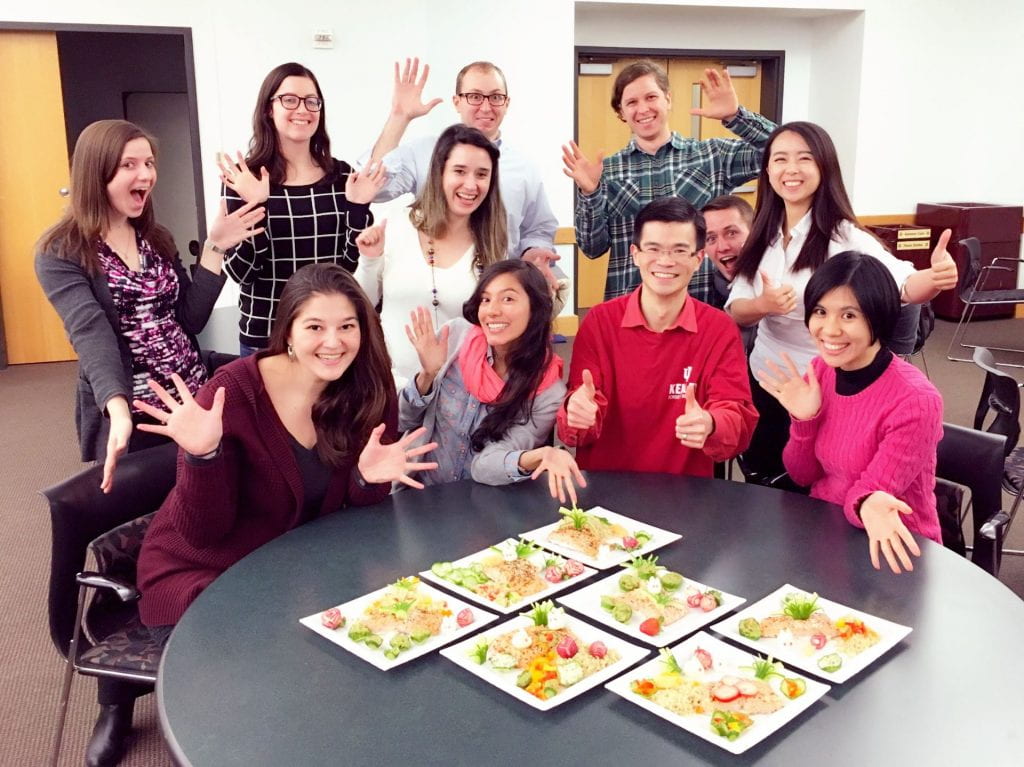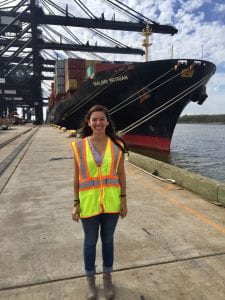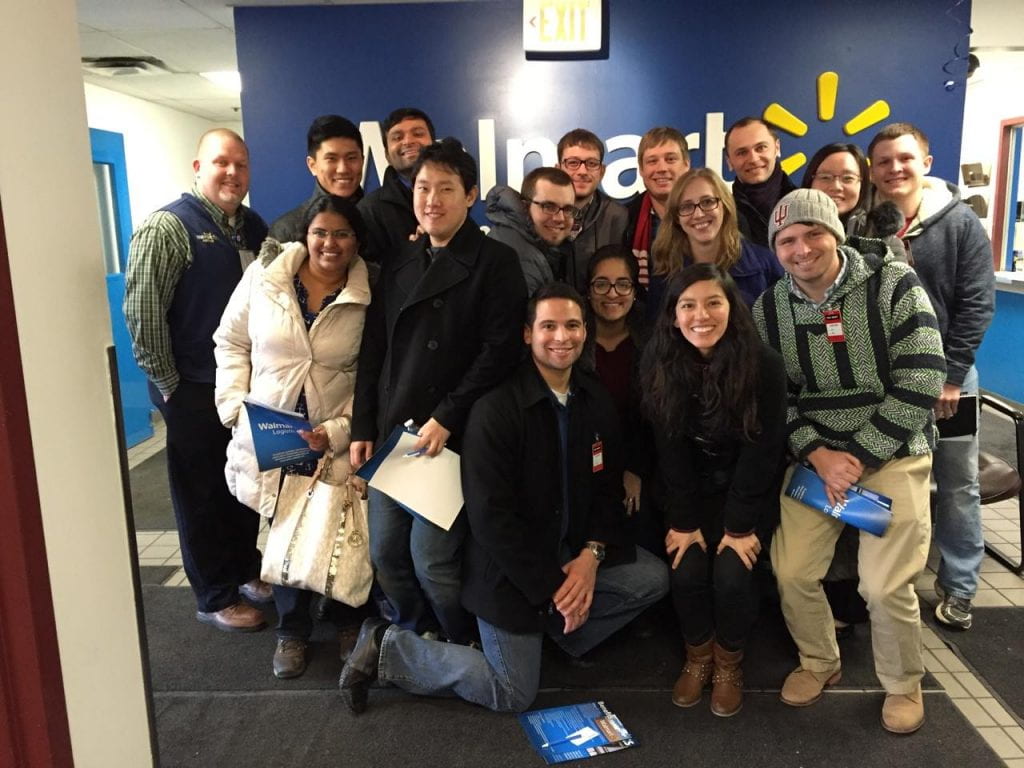
You had worked in several different engineering and supply chain roles before you joined the MBA program. What motivated you to return to graduate school—and to come to the United States—for your MBA?
Part of me always wanted to attend graduate school as I think it is important to never stop learning. My brother had gotten his MBA in the US and through some discussions with him thought this would be a good move for me in order to take my career to the next level. I knew there were many excellent universities in the US that I could look into and I also wanted to have the experience of living here.
What factors led you to choose Kelley over other MBA programs?
I attended “The Grad School”, an institute in Bogota that helps with training for the GMAT and school application counseling, and they gave me a list of potential schools that fit my interests and Kelley was one of them. I did some research on the school and the MBA program and it captured my interest, as I was looking for a school in a small to mid-sized city, with a strong supply chain MBA concentration, and a medium-sized class. After meeting in Bogota with Regina Lee, associate director of admissions, at an MBA conference and with current students during a winter break coffee chat, I decided to apply to the Kelley along with two other business schools that also met my criteria. I was accepted into all three but ultimately made my decision after I traveled and toured each of the campuses and met with people in each school. There is a magic to Bloomington and the culture that Kelley has that is undeniable and made me feel at home as soon as I got there. It is truly a collaborative, fun environment.
 You are from Bogota, Colombia—what was it like to be an international student at Kelley and in Bloomington, Indiana?
You are from Bogota, Colombia—what was it like to be an international student at Kelley and in Bloomington, Indiana?
I loved being an international student at IU and Bloomington. The town, which has an amazing international gastronomic scene, really goes out of its way to make the international students feel welcome. One example of how awesome B-town is is the Annual FGA, a huge event held at the beginning of the school year and ran by a local church with help of over 100 local volunteers where gently used furniture is given away to new Indiana University international students & scholars. As a person who came to the US with two pieces of luggage, the FGA was really helpful to get me settled in my new home.
Living in a small college town allowed me to share more experiences outside of class with my US classmates than I would’ve if we had been in a city close to their extended families and pre-MBA friends. The MBA is not only about academics, but also about building strong relationships.
The university supports international students through diverse associations and cultural centers, such as La Casa, which is a nice way to meet other international students outside of the business school. The law school also helps international students with filing their taxes, which I was extremely grateful for.
At Kelley, cultural diversity is embraced and celebrated at all levels and I always felt like the experiences and perspectives the international students shared enriched the program, during class, and outside of it. During my time there, I taught Spanish to my fellow classmates, celebrated Diwali with my Indian friends, attended American Football games, and during my first year I was the president of the Latin MBA association. I smile every time I think back on all these experiences.
Not many women choose to pursue careers in supply chain and operations. What can you tell us about these opportunities that would help women consider them?
As global operations become increasingly complex and the pandemic highlights supply inefficiencies, more companies are focusing their attention on that side of their operations and finding that supply chain experts are hard to come by. There is a talent gap that women can fill, and yes, in the past Supply Chain & Ops was viewed traditionally as a blue-collar/boys club but this attitude is changing as more women prove how they can enhance the field. During my career, I have worked with inspiring supply chain women, such as Emily Rodriguez, a warehouse supervisor that ran a crew of over 50 employees and had the best performing warehouse in Latin America for a huge multinational company, proving that women have a place in this strategic area of the business.
When you work in supply chain your job doesn’t just take place in front of a computer screen or in a conference room. You have to put on your steel toe boots and walk around the warehouse/ port/ distribution center/ manufacturing plant and know how to interact with people of all backgrounds to be successful at your job. The best improvement ideas come from the people doing everyday work. These aspects of supply chain are what drew me into this field and why I love it.
What were the 2-3 most impactful aspects of your experience at Kelley, and what made them so?
I hadn’t networked much during my time as an engineer and I didn’t have college football or US-centric cultural icebreakers to rely on, so at first, I found networking a terrifying experience that Kelley exposed me to. Over time and with more exposure, networking became easier for me as it is something crucial for job hunting and career progression.
I must say though, without a doubt, the most impactful aspect of my experience at Kelley was meeting my husband in the MBA program. We got married in Bloomington and took wedding pictures around campus on a cold winter day. He is a great partner and I love him.
Tell us a bit about your career since leaving Kelley (including your current employer and title) and how your Kelley experience has prepared you to accomplish all that you’ve done.
After leaving Kelley I worked for over a year as a Logistics Supervisor for TMC a division of C.H. Robinson, where I streamlined the outbound logistics process of a Chemical plant located in Texas for one of our customers. The plant was facing increasing logistics costs and declining customer service levels, due to shipment delays. In that role, I used a lot of the tools I learned in the MBA program, as it truly felt like a consulting project I could’ve been given at the school’s Supply chain academy. I worked with the plant personnel, carriers, a third-party warehouse provider, and ocean freight coordinator companies to understand their needs, find the root cause of their supply issues and leveraged analytics and best practices to make actionable recommendations to improve the operation.
In 2018 I was offered the opportunity to work as a Demand Planning Manager for the Specialty Additives division of Honeywell which is my current role. I get to work with an international team of account managers, supply chain leaders, marketing, finance, and the executive team to build our demand plan. Having the business acumen, I have from the MBA has been key for me to be successful at my role.
How would you evaluate your return on your MBA investment?
Having the MBA allowed me to double the salary I had before business school and obtain a managerial role in a Fortune 100 global company. Also, even though I went to a top university in Colombia, the reality is I needed the name recognition of a US university to get to where I am in a US-based company.
What’s one piece of advice that you’d offer to a prospective student (and particularly an international student) who is considering coming to Kelley for an MBA?
As an international student, come with an open mind and build long-lasting connections that are beyond your own cultural background. It’s easy to settle in your own cultural bubble because it is familiar, but you should interact with people from other cultures and take advantage of the situation of being in a different country. Go to tailgates, learn about American football, try different types of foods, and enjoy your time in the MBA because it goes by fast.
